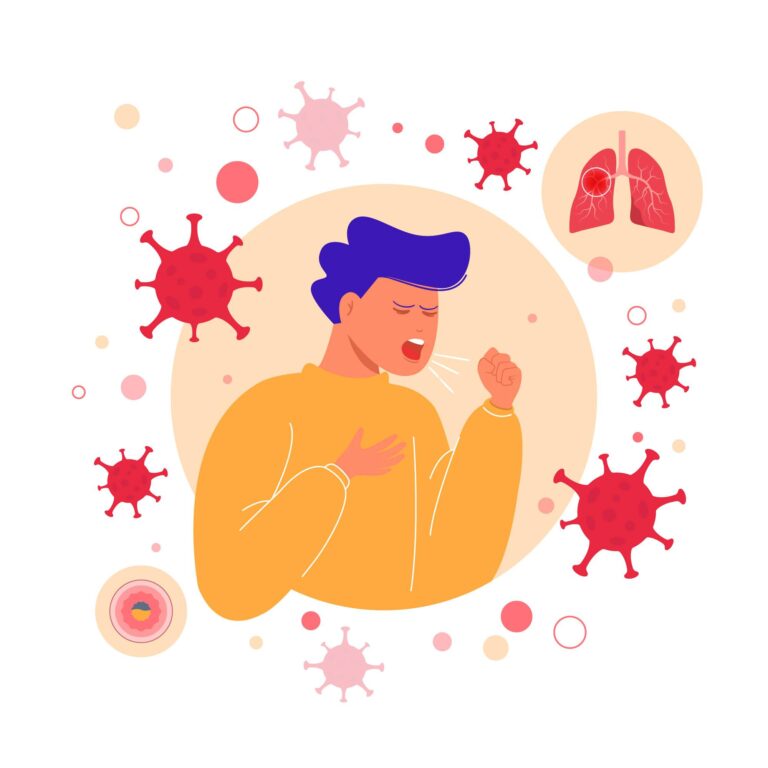
| Upper respiratory infections, commonly referred to as URIs, encompass a range of infections affecting the upper airways, including the nose, throat, sinuses, and larynx. Understanding how to recognize, manage, and prepare for URI season is crucial for safeguarding health and well-being. |
1. Introduction to Upper Respiratory Infections (URIs)
The upper respiratory tract is susceptible to various infections caused by viruses or, in some cases, bacteria. Understanding the different types of URIs and their origins is vital. Typically, these infections include the common cold, sinusitis, and pharyngitis.
What are URIs?
URIs refer to infections involving the upper respiratory tract, affecting the nasal passages, throat, and associated structures. They are predominantly caused by viruses, with the most common culprit being the rhinovirus. Other viruses include coronaviruses, adenoviruses, and respiratory syncytial virus.
Types and Causes of Upper Respiratory Infections
Different types of URIs can impact various parts of the upper respiratory system. For instance, the common cold primarily affects the nose and throat, causing symptoms like a runny nose and sore throat. Sinusitis involves inflammation of the sinuses due to viral or bacterial infections.
2. Recognizing Upper Respiratory Infection Symptoms
Recognizing the signs and symptoms of URIs is pivotal in managing and seeking appropriate care.
Common Signs and Symptoms
Symptoms of URIs typically include a combination of a sore throat, cough, congestion, sneezing, and sometimes mild fever. It’s essential to differentiate between viral and bacterial infections, as treatment approaches may vary.
When to Seek Medical Attention
While most URIs are viral and self-limiting, certain warning signs, such as difficulty breathing, high fever, or prolonged symptoms, necessitate medical consultation.

3- Being Prepared for Upper Respiratory Infection Season
Hygiene and Preventive Measures:
- Wash hands frequently with soap and water.
- Use hand sanitizer when hand washing is not possible.
- Practice good respiratory hygiene – cover your mouth when sneezing or coughing.
- Avoid close contact with individuals displaying symptoms of respiratory infections.
Boosting Immunity:
- Maintain a healthy diet rich in fruits, vegetables, and whole grains.
- Stay physically active.
- Get adequate sleep to support your immune system.
Consider Vaccinations:
Some vaccines can help prevent specific respiratory infections (like the flu vaccine).
Preventive Measures to Minimize the Risk of Infections
Practicing good respiratory hygiene, avoiding close contact with individuals displaying symptoms, and considering vaccinations, such as the flu vaccine, can significantly reduce the risk of contracting URIs.
4. Managing Upper Respiratory Infections
Once the symptoms of upper respiratory infections manifest, it’s important to know how to manage them effectively.
Self-care Tips and Home Remedies
Self-care measures play a significant role in managing mild symptoms. Rest, staying hydrated, using over-the-counter remedies for symptom relief (such as pain relievers and decongestants), and employing a humidifier to ease congestion are beneficial.
Medical Treatments and Antibiotic Use
Understanding that most URIs are caused by viruses is essential. Antibiotics are not effective against viruses and should not be used unless a bacterial infection is suspected or confirmed. Healthcare professionals may prescribe antiviral medications in certain cases.
5. The Importance of Proper Antibiotic Use
Overuse or misuse of antibiotics can lead to antibiotic resistance, making it crucial to use them judiciously.
Understanding When Antibiotics Are Necessary
Antibiotics are prescribed when a bacterial infection is confirmed or highly suspected. Bacterial infections might present with severe symptoms, high fever, or when symptoms persist for an extended period.
Risks Associated with Unnecessary Antibiotic Usage
Overuse of antibiotics contributes to antibiotic resistance, rendering these medications less effective over time. Misuse may also lead to side effects and disrupt the body’s natural balance of good bacteria.
6. FAQs about Upper Respiratory Infections
Answering common queries related to URIs and their management can provide a better understanding and clarity to readers seeking information:
FAQs
Q: Can antibiotics cure viral upper respiratory infections? No, antibiotics are ineffective against viral infections and should only be used for bacterial infections. Q: What are the best ways to prevent upper respiratory infections? Maintaining good hygiene, practicing respiratory etiquette, and considering vaccinations like the flu vaccine are key preventive measures. Q: How long do upper respiratory infections typically last? The duration varies, but most URIs last around 7-10 days. If symptoms persist, consult a healthcare professional. Q: Are there natural remedies to alleviate symptoms of URIs? Yes, staying hydrated, resting, using a humidifier, and consuming warm fluids can ease symptoms. Q: When should I seek medical attention for an upper respiratory infection? If symptoms worsen, persist for an extended period, or if breathing difficulties arise, it’s essential to seek medical advice promptly. |
In a nut shell...
Being ‘Upper Respiratory Infection season’ ready involves a comprehensive approach, from understanding the symptoms and causes to preparedness and proper management. Recognizing the distinction between viral and bacterial infections, knowing when to seek medical advice, and understanding the judicious use of antibiotics are all crucial in handling upper respiratory infections effectively.
In essence, prevention through good hygiene practices, adequate rest, and a healthy lifestyle plays a pivotal role in reducing the risk of contracting URIs. When symptoms occur, appropriate management, including self-care and, if necessary, medical intervention, ensures a speedier recovery and minimizes the risk of complications.
| This comprehensive guide aims to equip individuals with the knowledge and understanding necessary to navigate the upcoming upper respiratory infection season effectively. By employing preventive measures, recognizing symptoms, and knowing when and how to seek appropriate care, individuals can better manage and minimize the impact of URIs on their health and well-being. |
